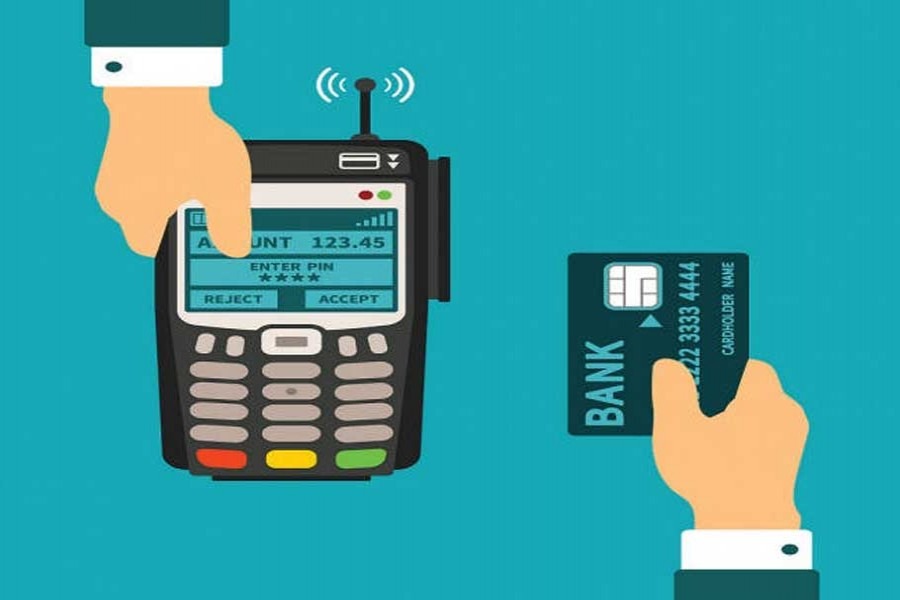
Published :
Updated :

In the age of digital financing, or fin-tech, the introduction of electronic payment of salaries in the country doesn't sound too extraordinary. Scores of vital sectors in socio-economic life have adopted digital technologies. In accordance with this trend, Bangladesh has stepped into its largely untested era of mandatory electronic disbursement of salaries among private sector employees. It falls under the new income tax law. Quarters watching the new system's developments fear it is set to adversely affect the low-paid people's wages through cash-out charges. This class of employees, along with others, is feared to be miserably hit by the new fiscal measure --- salary disbursement through electronic channels. As has been observed by tax experts, it is the cash-out charges which will leave a damaging impact on the income of the low-paid private sector workers. Accordingly, they have advocated reduction in cash-out charges for these economically vulnerable employees.
Considering the ongoing hard times in which these low-paid employees remain stuck, it's high time they were bailed out from their plight. Instead, their being subject to a new fiscal measure defies logic. Previously, there was an exemption ceiling reaching up to Tk 20,000 for salary payment in cash as per the tax law. From July 1, 2023, employers will be required to pay all salaries and wages by way of electronic channels. Tax would be imposed on the portion of expenditures paid in cash. According to the new income tax law, effective from June this year, expenditure on account of salary payment of a company would be considered 'disallowable income' in case of cash payment. Tax analysts say MFS (Mobile Financial Services) is a popular system of salary disbursement for lower-grade private officials. It enables the MFS regulator to take initiatives to bring down the cash-out charges to help expedite financial inclusion through banking system.
MFS is not unique to Bangladesh. A number of countries around the world have in operation the electronic salary disbursement for employees in varied forms. They include the UAE, a few regions in Brazil, Albania, Algeria and Argentina. According to Bangladesh Bank data, salaries worth Tk 291.62 billion were disbursed through MFS in 2021 calendar year. The amount increased to Tk 346.41 billion in 2022. The central bank had earlier issued directives for MFS providers to cap the cash-out charges for Universal Pension Scheme to 0.7 per cent. A directive like this could also be issued up to a certain ceiling in order to alleviate the finance-related anxieties of the lower-tier salaried persons, analysts suggest.
It's worth mentioning that RMG workers enjoy free cash-out as costs are borne by both companies and MFS. A digital ecosystem has already been developed through which RMG workers can cover 70 per cent of their payments directly from their mobile account. To speak in short, wage and salary disbursement through MFS has been gaining momentum as a result of digital financial inclusion in the country. At the same time, it's heartening to learn that the MFS industry has some special arrangements for the RMG workers' wage disbursement. They could be made to serve the marginal-income group of the salaried people if the employers show interest. Bangladesh Chamber of Industries observes transaction on electronic channels involves charges, tax deduction at source and fees that employers and employees have to bear. It suggests NBR could consider keeping a ceiling for the marginal-income persons for the time being. Teething problems associated with electronic salary disbursement warrant to be viewed patiently. Loopholes may surface in the system. Preparations to face them ought, also, to be in place.


 For all latest news, follow The Financial Express Google News channel.
For all latest news, follow The Financial Express Google News channel.